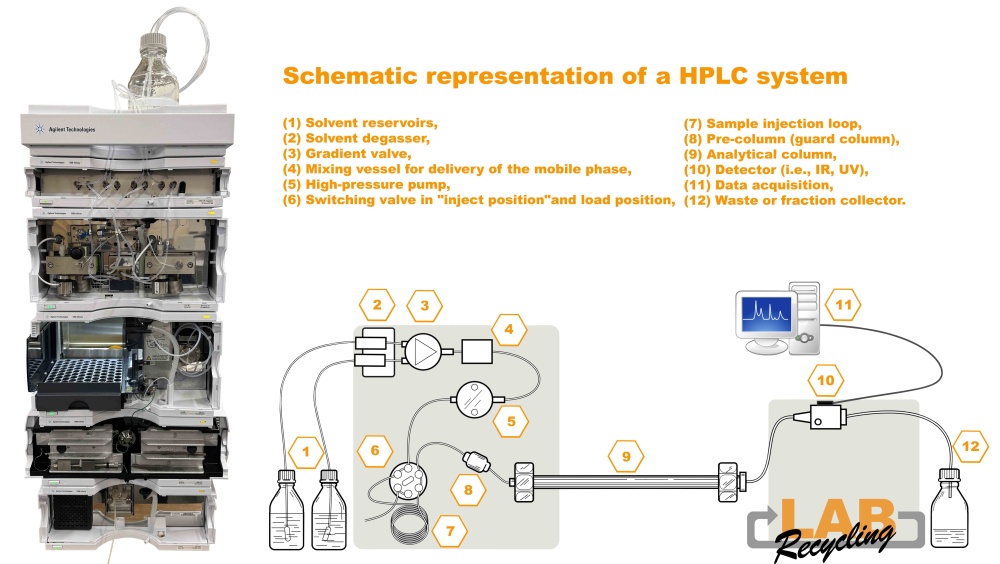HPLC stands for High Pressure Liquid Chromatography. Liquid chromatography is performed with an HPLC system. The moving phase (eluent) is pumped under high pressure (up to 200 bar) through a highly packed column.
By means of high pressure and good contact with the stationary phase, a relatively high separation speed and a very good resolution are achieved. The running time can vary from 5 to 60 minutes for the measurement of one sample with HPLC.